At the end of Birmingham Opera Company’s RhineGold, as the gods stood ready to enter Valhalla, Donner swung a baseball bat and summoned a rainbow bridge of human bodies — crawling, abject, before the new lords of creation. It was pretty much what we’ve come to expect from BOC’s founder Graham Vick, a director who never hints at a contemporary social message when he can ramraid our consciousness with one. Here, though, there was another twist of the knife. The human bridge was made up of delivery couriers, complete with branded cagoules and cycle helmets. Didn’t someone describe lockdown as ‘middle-class people hiding while working-class people bring them things?’. A smart touch, and vintage Graham Vick.
Except Vick wasn’t there. He died three weeks ago from complications of Covid-19, just as rehearsals commenced. This staging was directed by his long-term BOC collaborator Richard Willacy, and it’s impossible to say how closely it resembled Vick’s vision, in as far as he’d tied anything down. BOC always operates on the hoof, and apparently Symphony Hall was the third choice of venue. It was transformed, with a circular stage erected over the stalls, and the cast (including the non-professional community performers that Vick always put at the centre of his work in Birmingham) entering and exiting from all sides. If this wasn’t a Graham Vick production, his legacy — and his desperately missed presence — could not have been more evident.
Naturally, this was an urban Rheingold. The Rhinemaidens were selfie-taking party girls, Alberich (Ross Ramgobin) was a Just Eat courier, and Wotan (Eric Greene)’s posse of bickering deities were nouveau-riche celebs in ghetto-fabulous threads, first seen giving a press conference for FNN: Fake News Network. That was surely a Vick touch; likewise Wotan’s MAGA hat, slipped on for the benefit of the cameras. The supervillains in Vick’s political universe were exactly the ones you’d predict (he was still sore about Thatcher in 2019’s Lady Macbeth of Mtsensk). But the direct allusions were only ever set-dressing; thrown out to get a rise, then passed over as secondary to the infinitely more complex human drama implicit in the music.
That was the case here. ‘You treat me like dogshit!’ spits Alberich, in Jeremy Sams’s English translation, and I don’t imagine that Wagner — who was explicit about wanting his operas sung in the language of their audience — would have objected. Not in the presence of such immediacy, such invention, and such feet-first commitment to the drama. Alpesh Chauhan conducted the 87 players of the City of Birmingham Symphony Orchestra with a commanding sense of when to sustain and when to let everything blaze. The singing, too, was fearlessly characterised. Wotan and Alberich were both big-talking hollow men. Keel Watson gave Fasolt a sonorous dignity and presence, and Chrystal E. Williams, as Fricka, really glowed, with a sweetness of tone that belied her queen-bitch shoulderpads. Brenden Gunnell’s Loge wielded his tenor like a goad: canny, fierce and inscrutable behind his red goggles and Hells Angel leathers.
Then there was the moment — there’s one in every BOC production — where music, visuals and meaning suddenly coalesce, expand and engulf everyone present in a way that overwhelms rational response. It came early on, as the Rhinemaidens soared and the whole interior of Symphony Hall became a vortex of glittering light. It was just a glitterball and a yellow spotlight (BOC has always been resourceful) but in that instant, Willacy and his company created something close to ecstasy — as Wagner might have put it, a complete artwork. It’s why opera, despite everything, remains the sublimest of all dramatic artforms; and why it’s vital that this company — incontestably the most artistically significant force in British opera this century — finds a way forward in Vick’s absence. It simply must.
BOC productions have a habit of relegating everything else to the footnotes. The hero of Mascagni’s L’amico Fritz is a German winemaker (and confirmed bachelor) whose best friends are a rabbi and a gypsy. Imagine what some directors would make of that. Mercifully, Julia Burbach’s production for Opera Holland Park had no agenda beyond presenting Fritz as what it is: a soft-hearted romantic comedy set in a Stella Artois-advert Arcadia, with ardent, likeable romantic leads (Matteo Lippi and Katie Bird) plus sun-kissed singing from Paul Carey Jones as Rabbi David. Beatrice Venezi conducted splashily, but I doubt anyone really minded.
The BBC Proms, meanwhile, opened to a half-full hall with Vaughan Williams, Poulenc (the Organ Concerto, with Daniel Hyde as soloist), a short, sweet commission by Sir James MacMillan and a performance of Sibelius’s Second Symphony in which Dalia Stasevska drew sweeping lines and iridescent colours from a (clearly) energised BBC Symphony Orchestra. Real meat-and-two-veg programming. But sometimes a big D major finish is exactly what hits the spot.
Got something to add? Join the discussion and comment below.
Get 10 issues for just $10
Subscribe to The Spectator Australia today for the next 10 magazine issues, plus full online access, for just $10.
You might disagree with half of it, but you’ll enjoy reading all of it. Try your first month for free, then just $2 a week for the remainder of your first year.

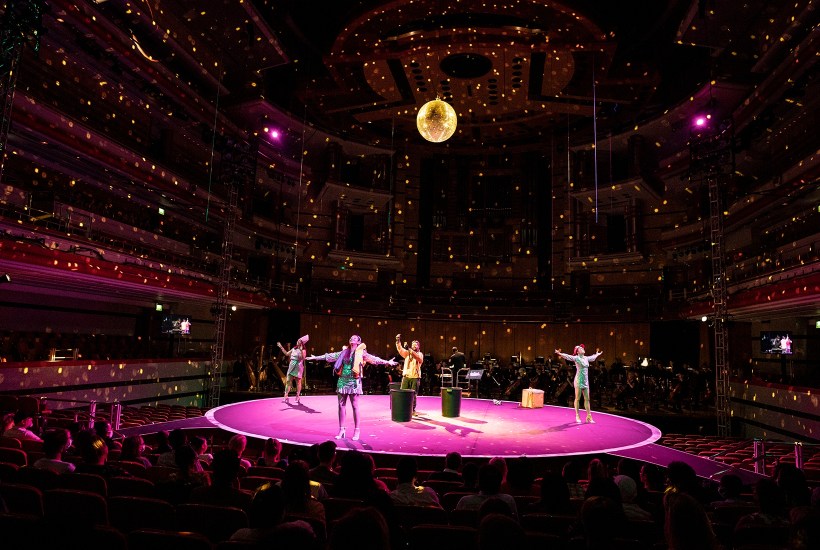
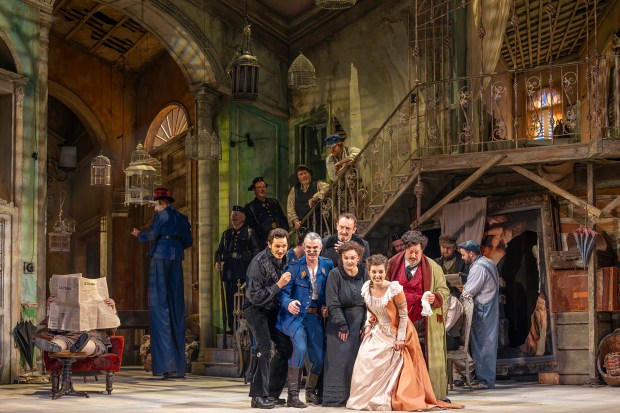
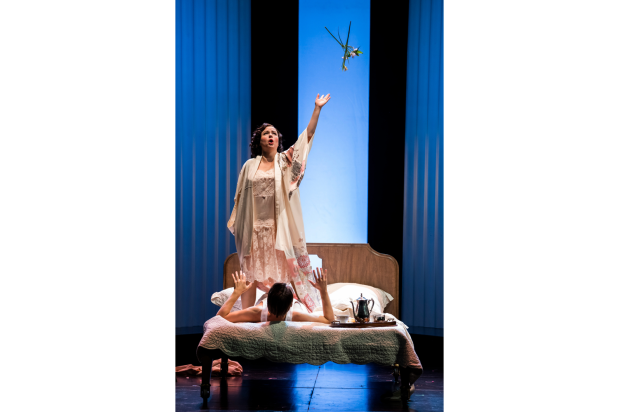
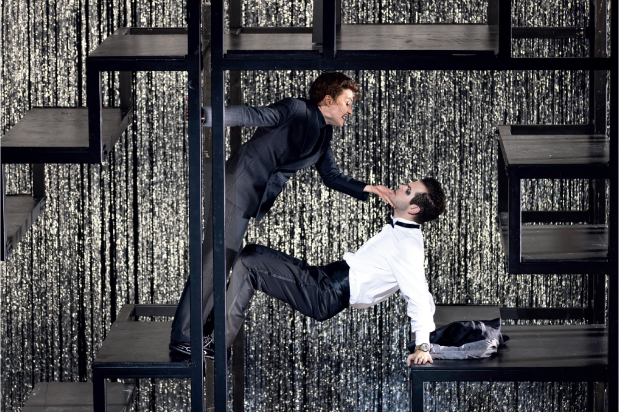
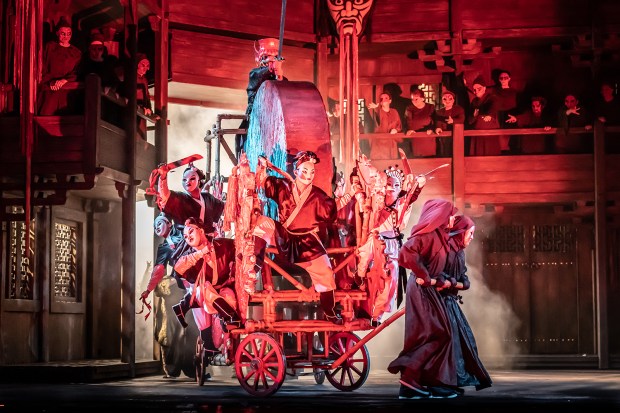
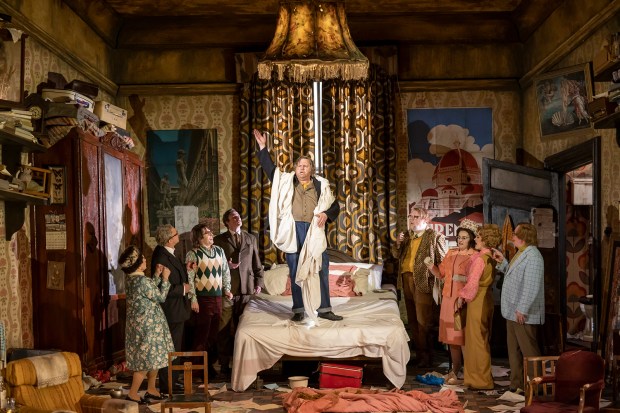
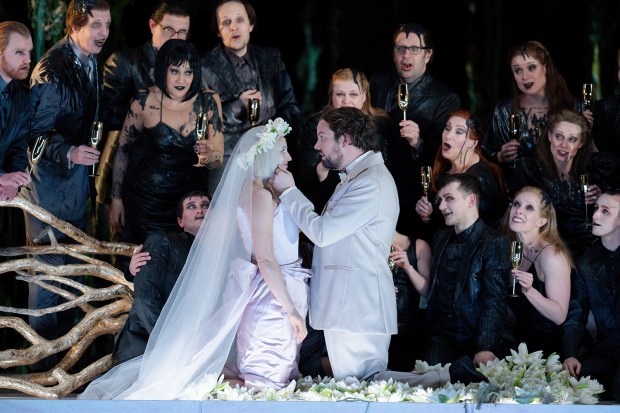






Comments
Don't miss out
Join the conversation with other Spectator Australia readers. Subscribe to leave a comment.
SUBSCRIBEAlready a subscriber? Log in